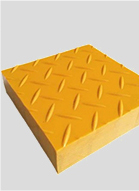loading...
- No. 9, Xingyuan South Street, Dongwaihuan Road, Zaoqiang County, Hengshui, Hebei, China
- admin@zjcomposites.com
- +86 15097380338
- Welcome to visit our website!
Exploring the Benefits of FRP Rectangular Tubes in Structural Applications
The Versatility of FRP Rectangular Tubes
In the landscape of modern engineering and construction, materials play a crucial role in determining the efficiency, durability, and overall performance of structures. One such material that has gained significant attention in recent years is Fibre Reinforced Polymer (FRP). Among the various forms that FRP can take, FRP rectangular tubes stand out for their unique combination of strength, lightweight nature, and versatility. This article explores the properties, applications, and advantages of FRP rectangular tubes.
What is FRP?
Fibre Reinforced Polymer (FRP) is a composite material made of a polymer matrix reinforced with fibrous materials. The most common types of fibres used in FRP are glass, carbon, and aramid, each offering different properties. The polymer matrix often consists of thermosetting or thermoplastic resins, which bind the fibres together and contribute to the overall strength and durability of the material.
Properties of FRP Rectangular Tubes
FRP rectangular tubes exhibit exceptional properties that make them suitable for a wide range of applications. Some of these key properties include
1. High Strength-to-Weight Ratio FRP rectangular tubes are significantly lighter than traditional materials such as steel or concrete, yet they possess high strength and stiffness. This characteristic allows for easier handling and transportation, reducing overall construction costs.
2. Corrosion Resistance Unlike metals, FRP rectangular tubes do not corrode when exposed to harsh environmental conditions, chemicals, or moisture. This resistance extends the lifespan of structures and reduces the need for maintenance.
3. Design Flexibility FRP can be molded into various shapes and sizes, offering architects and engineers great design flexibility. Rectangular tubes can be produced in custom dimensions to meet specific project requirements.
4. Thermal Insulation FRP materials have low thermal conductivity, which provides excellent insulation properties. This feature can contribute to energy efficiency in buildings and reduce heating and cooling costs.
frp rectangular tube

5. Electrical Insulation FRP rectangular tubes are non-conductive, making them ideal for applications in electrical and electronic industries where insulation is essential for safety.
Applications of FRP Rectangular Tubes
The versatility of FRP rectangular tubes has led to their adoption in various industries and applications
1. Construction FRP rectangular tubes are used as structural elements in buildings, bridges, and other infrastructures. Their lightweight nature allows for easier implementation in architectural designs, while their strength supports heavy loads.
2. Transportation In the automotive and aerospace industries, FRP rectangular tubes are employed for structural components that require a combination of strength and lightness. This helps improve fuel efficiency and overall performance.
3. Marine Applications Given their corrosion resistance, FRP rectangular tubes are extensively used in marine environments, such as for the construction of docks, boat hulls, and other marine structures.
4. Industrial Equipment Various manufacturing and industrial sectors utilize FRP rectangular tubes for equipment and machinery where lightweight and corrosion-resistant materials are necessary.
5. Renewable Energy In the wind energy sector, FRP rectangular tubes are used in the construction of wind turbine towers and components, contributing to the growing sustainability efforts in energy production.
Conclusion
As industries continue to explore innovative materials, FRP rectangular tubes stand out as a formidable option in modern engineering and construction. Their unique properties—high strength-to-weight ratio, corrosion resistance, thermal insulation, and design flexibility—make them suitable for a myriad of applications across diverse sectors. With increasing emphasis on sustainability and efficiency, the future of FRP in construction and manufacturing looks promising, paving the way for ongoing research and development in this exciting field. Whether in infrastructure, transportation, or renewable energy, FRP rectangular tubes are set to play a vital role in shaping the future of material science and engineering.
-
The Rise of FRP Profiles: Strong, Lightweight, and Built to LastNewsJul.14,2025
-
SMC Panel Tanks: A Modern Water Storage Solution for All EnvironmentsNewsJul.14,2025
-
GRP Grating: A Modern Solution for Safe and Durable Access SystemsNewsJul.14,2025
-
Galvanized Steel Water Tanks: Durable, Reliable, and Ready for UseNewsJul.14,2025
-
FRP Mini Mesh Grating: The Safer, Smarter Flooring SolutionNewsJul.14,2025
-
Exploring FRP Vessels: Durable Solutions for Modern Fluid HandlingNewsJul.14,2025
-
GRP Structures: The Future of Lightweight, High-Performance EngineeringNewsJun.20,2025
